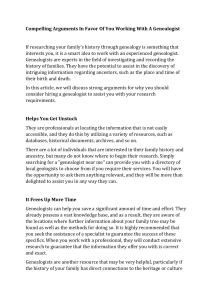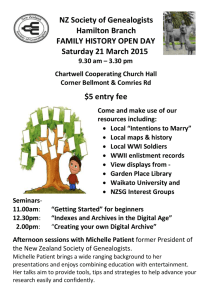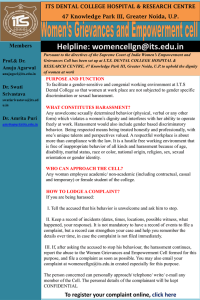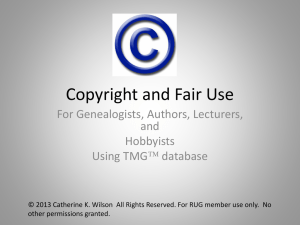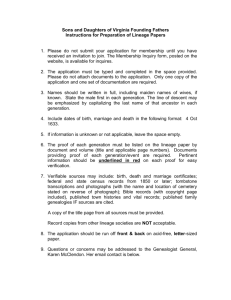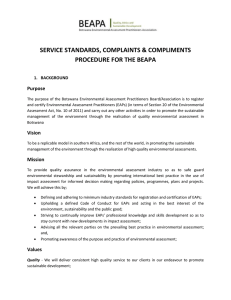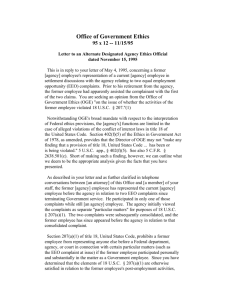ASGRA Code of Practice: Full Member & Probationer
advertisement
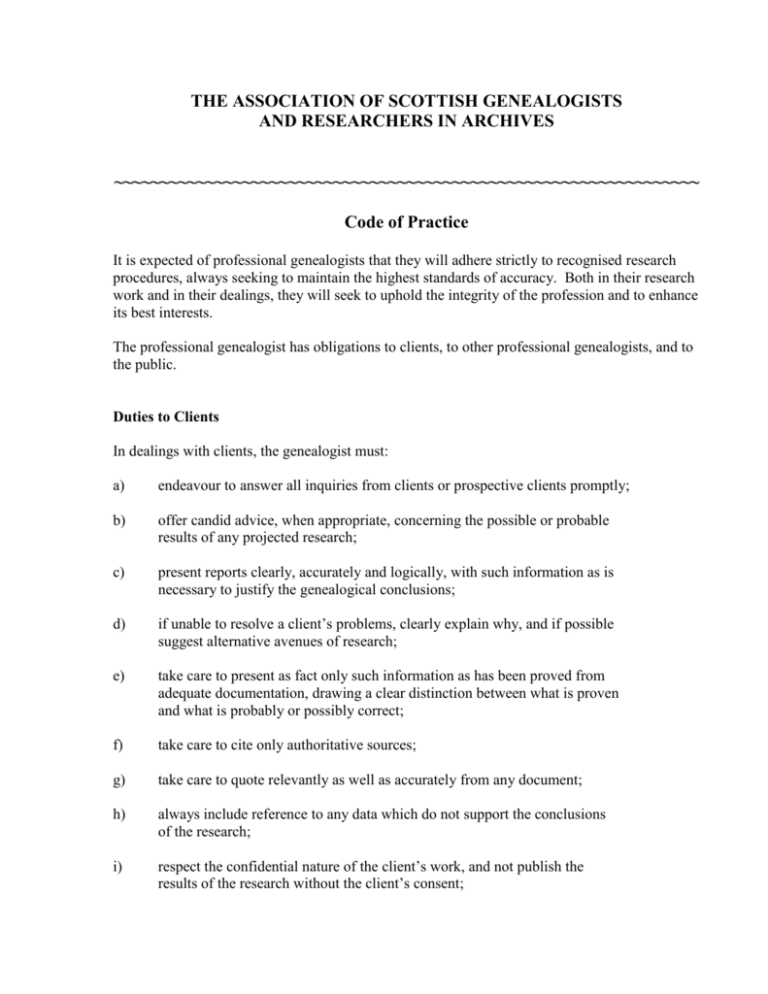
THE ASSOCIATION OF SCOTTISH GENEALOGISTS AND RESEARCHERS IN ARCHIVES ~~~~~~~~~~~~~~~~~~~~~~~~~~~~~~~~~~~~~~~~~~~~~~~~~~~~~~~~~~~~~~~~ Code of Practice It is expected of professional genealogists that they will adhere strictly to recognised research procedures, always seeking to maintain the highest standards of accuracy. Both in their research work and in their dealings, they will seek to uphold the integrity of the profession and to enhance its best interests. The professional genealogist has obligations to clients, to other professional genealogists, and to the public. Duties to Clients In dealings with clients, the genealogist must: a) endeavour to answer all inquiries from clients or prospective clients promptly; b) offer candid advice, when appropriate, concerning the possible or probable results of any projected research; c) present reports clearly, accurately and logically, with such information as is necessary to justify the genealogical conclusions; d) if unable to resolve a client’s problems, clearly explain why, and if possible suggest alternative avenues of research; e) take care to present as fact only such information as has been proved from adequate documentation, drawing a clear distinction between what is proven and what is probably or possibly correct; f) take care to cite only authoritative sources; g) take care to quote relevantly as well as accurately from any document; h) always include reference to any data which do not support the conclusions of the research; i) respect the confidential nature of the client’s work, and not publish the results of the research without the client’s consent; keep an accurate record of financial transactions relating to the client’s account. j) Duties to Professional Colleagues The genealogist must: a) respect the professional reputation of other genealogists, never consciously injuring or attempting to injure the prospects or practice of colleagues; b) be prompt in remitting payments for services rendered. Duties to the Public The genealogist should: a) seek to promote greater public interest in genealogy and a fuller understanding of the subject; b) be careful to refrain from exaggerated, misleading or false publicity, especially when advertising for commissions. Complaints If a researcher is unable to complete his/her current workload, due to unforseen circumstances, the Chairperson or a Member of Council should be advised of this, to enable assistance to be arranged. On a complaint being received by the Association, in relation to the work of a member concerning : a) b) c) the quality of the work; the failure to complete a search in reasonable time; any activity of the researcher which, in the opinion of the Council, is likely to bring the Association into disrepute; the Chairperson or nominee will contact the member, to ascertain the substance of the complaint, and thereafter may decide whether the matter should be brought before the Council or not. The Council, on receiving a complaint, will decide whether the complaint is valid and sufficiently serious to merit a written warning to the member concerned. The Chairperson will arrange for the required work to be completed either by the original researcher or by another member of the Association within an agreed time limit. If, after 3 written warnings, a further valid complaint is received, all within a period of 3 years, the member will be removed from the list of researchers. On receiving a complaint, the Chairperson will write to inform the complainant that the matter is being investigated. A further letter will be sent following the delivery of the report, to enquire whether the complainant is satisfied with the outcome. The Council has the right to order the researcher to return all or a proportion of any pre-paid amount to the complainant. July 2006 0706
